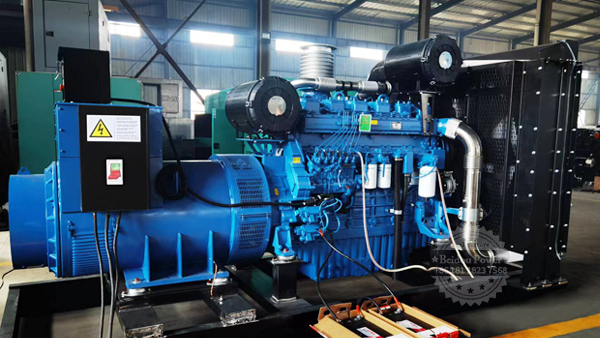Diesel generators are equipped with turbochargers in order to enhance their own unit power, which can greatly improve the power of the generator set. Although turbochargers can effectively improve engine power, the occurrence of turbocharger failure is inevitable. In order to avoid such failures as little as possible or do not occur, the following for everyone to analyze the causes of silent generator turbocharger failure.
1. Insufficient lubricating oil or lagging oil supply
(1) When the speed of the turbocharger and the load of the silent generator set increase, the oil supply of the turbocharger lubricating oil must also increase, because the unit is running at high load and the turbocharger speed is very high, even if only a few seconds of insufficient oil supply to the turbocharger bearing will cause bearing damage.
(2) When the unit is working under the inclined state (partial load or full load operation), if the oil level is too low or inhaled air, it will cause the oil pressure to decrease, even if the time is short, it is possible to damage the supercharger due to lack of lubricating oil.
2, external debris or sediment into the lubrication system
Oil containing stolen goods or sediment wear and damage to turbocharger bearings is much more serious than damage to engine bearings, because the speed of the turbocharger is much higher than the speed of the engine. If such damage occurs to the turbocharger, the cause of the oil stolen should be found and eliminated, otherwise even if the new supercharger is replaced, damage will occur, and the development of the engine may be damaged. When the stolen particles mixed in the oil are large enough to block the oil passage inside the turbocharger, the supercharger will be damaged due to lack of lubricating oil. When replacing the oil and oil filter, the oil sample in the diesel engine can be extracted for analysis if conditions are available, which will help prevent the above damage; The oil filter should be replaced in accordance with the replacement period specified in the instruction manual, and must not be extended at will.
3, external foreign matter into the diesel engine intake or exhaust system
The turbine and compressor impeller of the turbocharger rotate at a very high speed. Once external foreign matter enters the inlet and exhaust system of the engine, the impeller will be damaged. Small objects (such as sediment) will erode the impeller and change the wind guide Angle of its blades; Large, hard objects can cause the blade to break; Soft objects (such as cotton yarn) are rolled onto the blade in the direction of rotation of the impeller.
4, engine oil oil oxidation or deterioration
Due to the oxidation and deterioration of the oil of the silent generator set, the engine oil will form a sludge deposit, which will affect the performance and life of the turbocharger.
5. The working temperature of the turbocharger is too high
Generally speaking, the heat source that causes the working temperature to be too high comes from the gas (exhaust gas) emitted by the silent generator set, and the exhaust gas temperature is too high will directly or indirectly damage the supercharger.
(1) Direct damage, that is, the middle shell of the supercharger is overheated due to high temperature, and the turbine shell material is corroded or deformed; Excessive exhaust gas temperature can also cause turbine shell cracking.
(2) Indirect damage, that is, when the exhaust gas temperature is too high, the extra heat energy in the exhaust gas will make the rotor assembly of the turbocharger accelerate and work under conditions higher than the design speed, if this happens, the compressor impeller will crack due to one or multiple times of high stress load. The turbine impeller will also crack due to reduced strength of the material at high temperatures and increased turbine speed.
Post time: Jul-14-2023

